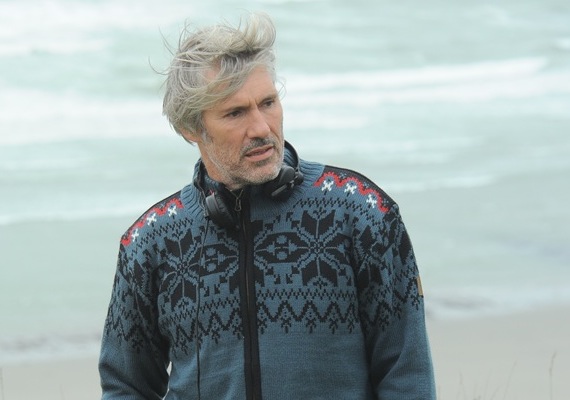Harry Cleven • Director
"Angel is a fairy tale for adults, a resolutely dreamlike film”
- Angel heralds the return to film of Belgian filmmaker Harry Cleven. A bold gamble awash with sensations

Harry Cleven started his career as a director in 1989, after studying drama, and went on to make a number of short films, films for television, and TV series. In 2004, he made Trouble [+see also:
film review
interview: Harry Cleven - director of …
interview: Harry Cleven
film profile] starring Benoît Magimel, Natacha Régnier and Olivier Gourmet, which won multiple awards, and he also works as a screenplay consultant and actor himself. Angel [+see also:
film review
trailer
interview: Harry Cleven
film profile] is his fourth feature film.
Cineuropa: How was this project born?
Harry Cleven: I was working on a pretty complex project, which I’m still actually working on with Canada, and was fed up of waiting around. Jaco Van Dormael, who is my best friend and my producer, suggested making a small and inexpensive film, to be filmed within the year. Anyway, we got in touch with his partner in crime, Olivier Rausin at Climax Films, who dug up some funding for us, and ended up with 20 times the budget we expected to get! As for the story, this is the second time I’ve worked with Thomas Gunzig, and that he’s had some absolutely harebrained ideas that I love. He thought up the story of an invisible little boy who is born in a psychiatric hospital. For my part, I couldn’t resist, I always have to work a love story in.
How do you combine a love story with fantasy?
When love affairs are strong, they call all our points of reference into question. They can bring the best of us out, and give us a sensorial experience of life. I wanted to make an extremely sensorial film, making the audience feel like they’re looking through the eyes of the invisible man. I wanted to explore all the sensations felt by a man in love. It very quickly turned into a fairy tale, a fairy tale for adults, a resolutely dreamlike and not at all naturalistic film. What interests me more than the story of a film is its texture. Here, I wanted a rather surreal texture, a quality bordering on magical realism that you find in certain Belgian films and paintings.
What approach did you take for the special effects?
As we developed the film without a budget in mind, we originally thought we would have to make do without special effects. I revisited some of Méliès’ film tricks, and worked on the presence of the invisible character from there. The camera is essentially subjective, and from time to time we feel the presence of Angel, or rather his physical impact on the world around him. We created special effects that I refer to as "organic", or rather effects that we created on-stage. Then in post-production, the special effects technicians suggested some extraordinary things, which weren’t necessarily in the screenplay, but strengthened the poetic side of the film. For the images, I worked with Juliette Van Dormael, who I had wanted to work with for a long time. We did a lot of cutting, almost filming the film before the actual shoot, to be sure about the shots we wanted. The tone was so specific that we couldn’t put a foot wrong during filming. Often in love affairs, we’re so close to the other person physically than all that’s left is sound. Here, as one of the characters is blind, this dimension was particularly important. The film has a very sensorial soundtrack, which is very peripheral at times, and very evocative.
Upon reading the screenplay, I imagine people asked you how you were going to make the audience believe in this story about an invisible little boy, no?
Yes, but then during editing, we realised that this wasn’t actually an issue. The love story is so strong that you get on board with it no questions asked. And we suddenly saw that the film become stronger when we added an extra dimension, doubt as to the existence of Angel. When all is said and done, they are so eager to believe in him, that it is the audience that makes Angel exist.
(Translated from French)
Did you enjoy reading this article? Please subscribe to our newsletter to receive more stories like this directly in your inbox.















